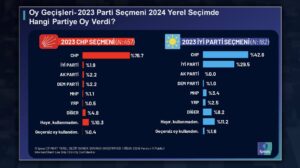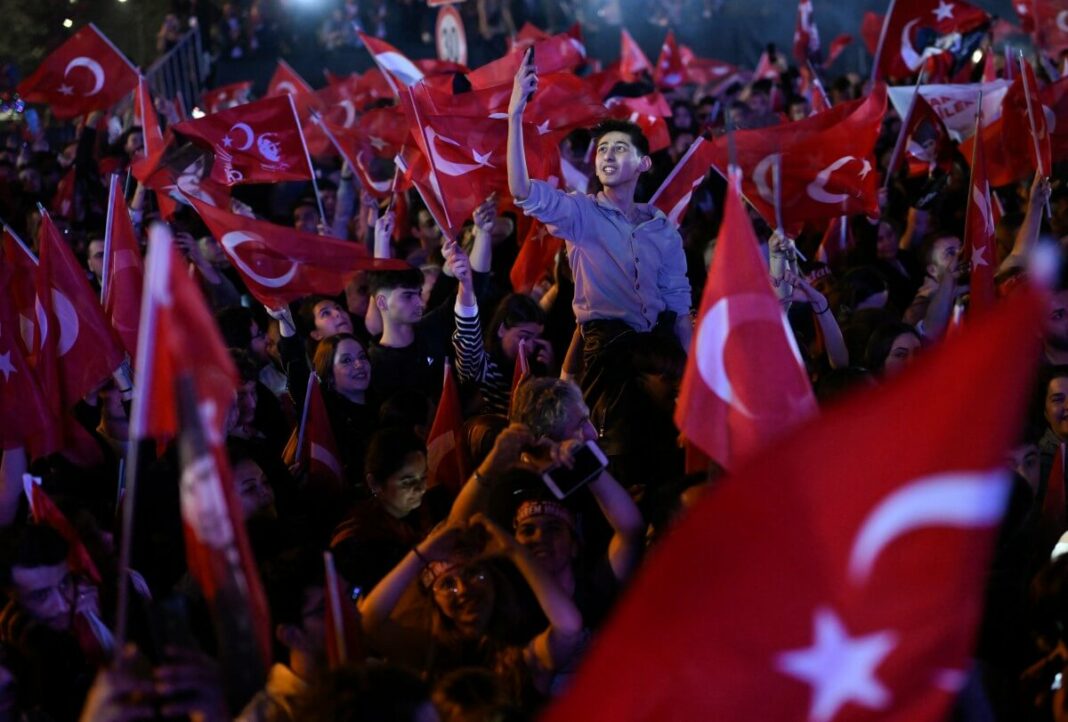The results of an Ipsos survey conducted after the March 31 local elections in Turkey have revealed that 13.3 percent of ruling Justice and Development Party supporters voted for the main opposition Republican People’s Party (CHP).
In the local elections, the CHP emerged as the leading party for the first time in 47 years, securing 37.7 percent of the vote, maintaining control of key cities and securing substantial gains in other regions, while the AKP, for the first time in 22 years, came in second, garnering only 35.4 percent of the vote.

Ipsos Turkey CEO Sidar Gedik announced the results of a survey conducted on 2,029 people across the country in the two days following the local elections during a live program on the pro-government Habertürk TV.
According to the pollster, 13.3 percent of AKP voters, 20.4 percent of supporters of the far-right Nationalist Movement Party (MHP), an ally of President Recep Tayyip Erdoğan, and 42.6 percent of nationalist opposition İYİ (Good) Party voters supported the CHP in the local elections.
Gedik also said that 16 percent of people who voted for the ruling AKP in the presidential election held in May 2023 chose not to cast votes in the March 31 elections. While 10 percent of CHP supporters didn’t vote in the local elections, AKP supporters constitute 26 percent of all non-voters.
Support for both Turkey’s ruling-party ally and nationalist opposition parties saw a significant decline in the local elections following a campaign marked by less intense rhetoric compared to the run-up to the general election held last May. 
One of the reasons for the decline in the İYİ Party’s vote share is that the party nominated its own candidates in all provinces for the 2024 local elections and didn’t forge an alliance with its former ally, the main opposition CHP.
One contributing factor to the CHP’s success in the election was the pro-Kurdish Peoples’ Equality and Democracy Party’s (DEM Party) decision to field its own candidates and refrain from forming an alliance with the CHP. This move prevented the ruling AKP from accusing the CHP of supporting terrorism and thus thwarted the governing alliance, including the MHP, from increasing its votes by using nationalist rhetoric.
Pro-Kurdish party members or politicians in Turkey are frequently accused of having links to the outlawed Kurdistan Workers’ Party (PKK), which has been waging a bloody campaign in Turkey’s southeast since 1984 and is listed as a terrorist organization by Turkey and its Western allies.



